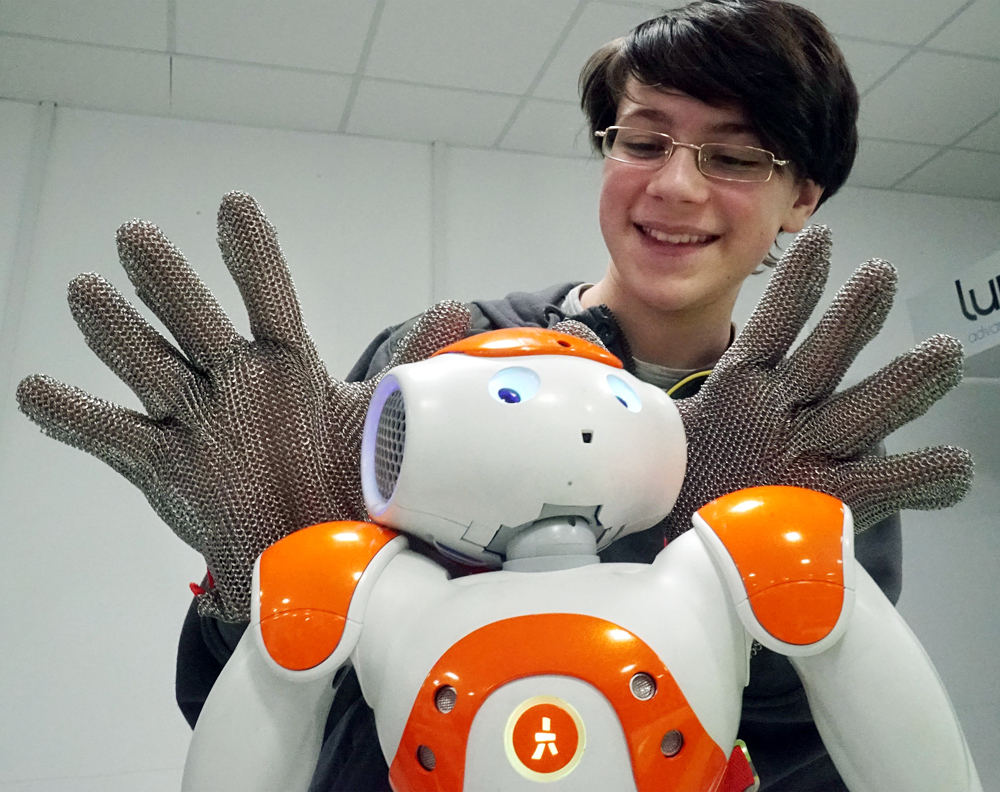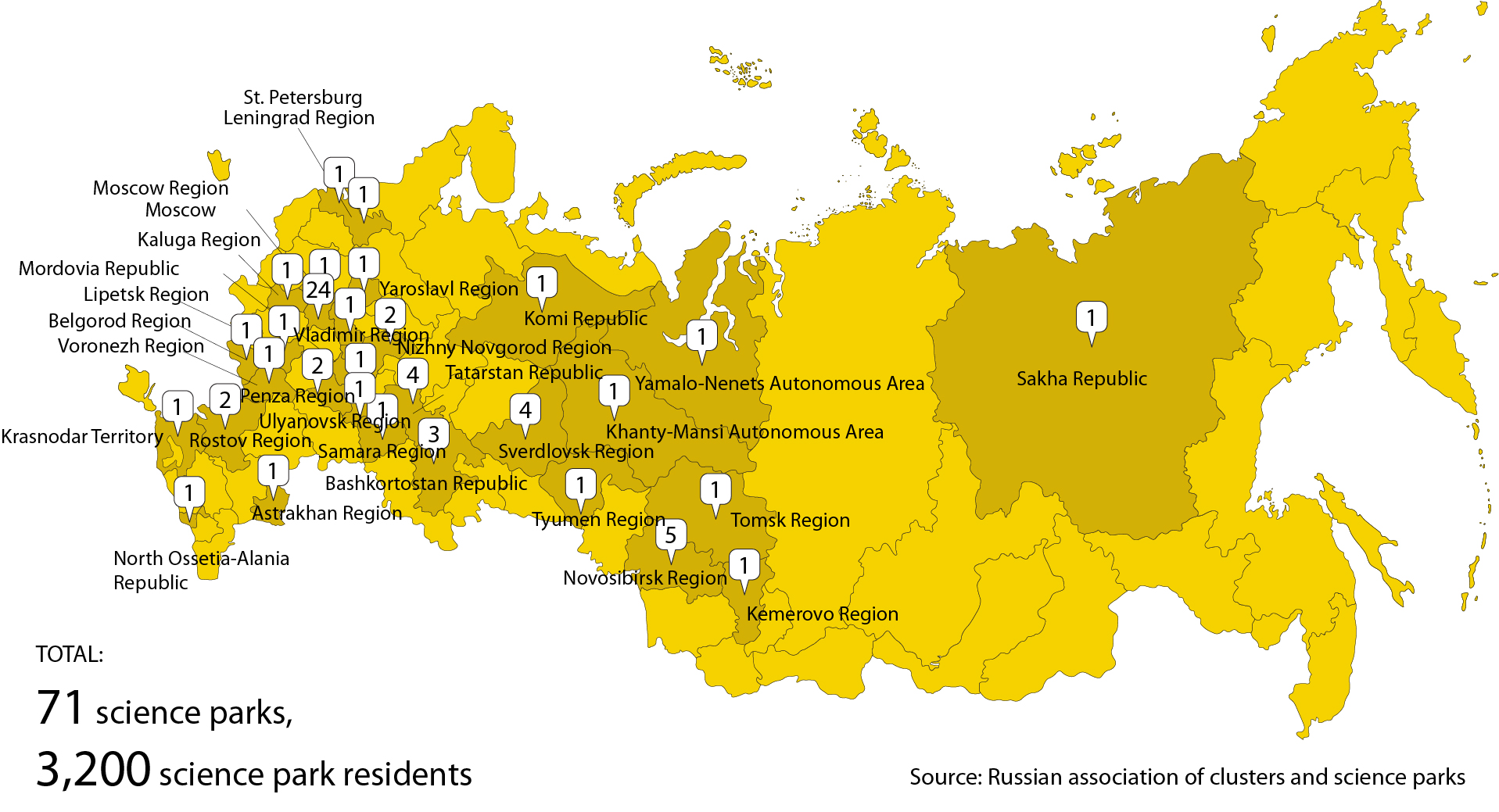Science parks: Russia's secret weapon, or Potemkin village?

A schoolchild is seen here with a NAO robot at the IT sector of the 'Fablab' industrial laboratory of the Fabrika techno park at the Immanuel Kant Baltic Federal University, Kaliningrad.
Igor Zarembo/RIA NovostiIn the previous five to ten years the number of science parks in Russia has grown rapidly. Officially, there are now more than 300.
Experts, however, say a large number exist on paper only. For example, they might just be office buildings, and not centers of technological innovation and development that the country needs in these difficult times.
According to the Russian Association of Clusters and Science Parks, there are only about 70 genuine full-fledged science parks in Russia. These are places where tech entrepreneurs can receive the full spectrum of necessary support.
Wanted: state support
"A genuine science park consists of laboratories, and organizes educational and acceleration events, as well as provide support for startups that want to reach international markets; but the majority of science parks in Russia are either industrial areas or just office buildings," Renat Batyrov, general director of the Skolkovo Science Park, told RBTH. He points to the IT-park in Kazan, and the Novosibirsk Science Park as examples of truly successful projects.
In these times of economic crisis and shortage of financing Russian science parks can only count on state support. Private domestic investors are tightening budgets, and foreign investors are blocked by sanctions.
"If the government decides to invest in science parks, it would be one of the most effective anti-crisis measures," said the Russian Association of Clusters and Science Parks in a statement. "This would help create new high-tech companies and new jobs. Science parks create favorable conditions for the development of new businesses."
Some go East; some go West
According to the Russian Communications Ministry, most science parks specialize in the IT field. Other fields include medicine, biotech, nanotechnology, and the development of new materials. One more important sector for Russia is the oil and gas industry.
Russia's massive size has an impact on science parks' specializations and geographic orientation. Parks in the Far East and Siberia are oriented more towards collaboration with China, Japan and South Korea.
"Due to our proximity, we can serve as a window to Asia for Russian tech companies," Anatoly Semenov, director of the Yakutia Science Park in Siberia, told RBTH. This park already has joint projects with a South Korean bio-tech company in Chuncheon Province.
Science parks in Moscow, St. Petersburg and Kaliningrad feel a stronger tie to Europe.
"We are oriented more towards Finland, the Czech Republic and those countries closest to St. Petersburg," said Alexander Koloustov, director of the science park at the St. Petersburg National Research University of Information Technologies, Mechanics and Optics.
The type of business often influences cooperation with other countries. For example, French companies are interested in Russia's south with its proximity to the markets of Eastern Europe and its agro-industrial potential.
"Due to the presence of Renault in our city, we are actively developing automobile technologies; and many French citizens currently live in Togliatti," noted Alexei Kokotkin, deputy general director of the Zhigulevskaya Dolina Science Park, which also collaborates with France in the field of space technologies.
The future is bright
As far as the future Mr. Batyrov believes that the pseudo science parks operating in office buildings will eventually vanish. Geographical specialization will be preserved and will possibly become even more defined.
“Considering Russia's technological needs there should be a science park in every city with a population over 500,000 people,'' said Batyrov. "It's necessary to coordinate the best parks, and create information systems that will help residents find partners in other science parks at home and abroad.''
Read more: Virtual reality films inspire the physically disabled>>>
All rights reserved by Rossiyskaya Gazeta.
Subscribe
to our newsletter!
Get the week's best stories straight to your inbox

